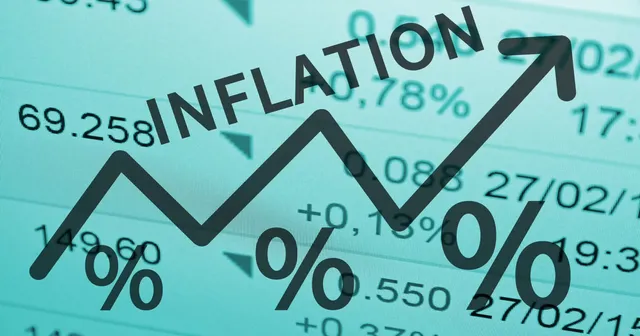News
Policy Shifts Expected After Latest Inflation Report
Governments and financial institutions are preparing for possible policy changes following the release of the latest inflation report, which highlights continued pressure on consumer prices and essential goods.

Discussions over how governments and central banks should respond to the continuous increases in the cost of basics have been reignited by the most recent inflation data. In all major economies, rising food, energy, and housing costs continue to affect consumers. Decision-makers are under more pressure to act quickly to prevent the economy from getting worse as a result of these ongoing challenges. The latest data indicates that while inflation is decreasing in certain regions, it remains consistently high in others, according to economic specialists. Core inflation rates—which do not account for changes in the price of food and energy—remain alarming. This suggests that pricing instability may be caused by more than just short-term fluctuations; it may also be the result of deeper structural issues. In response, government officials are considering altering many policies. Examples include cutting back on non-essential public spending, giving low- and middle-income individuals targeted tax breaks, tightening or changing monetary policy, and increasing subsidies for needs. However, every decision carries some risk. Even though interest rate increases may help control inflation, they can also impede economic growth and increase borrowing costs for firms and individuals. Small and medium-sized enterprises are among those most affected by ongoing inflationary pressures. Growing operating costs and dwindling consumer purchasing power have forced many businesses to reevaluate their pricing and cost structures. Business owners are asking the government for help so they can weather the present economic storm without having to close their doors or fire staff. Meanwhile, labor unions and consumer advocacy groups are demanding more measures to protect household income. Rising living costs have diminished families' purchasing power, making it increasingly difficult for them to meet their fundamental needs. Calls for salary adjustments, rent control laws, and transit subsidies are growing louder in many urban regions. Despite the fact that government officials have not yet revealed any specific further measures, insiders say a formal response is expected in the coming weeks. Given the current status of the world, policy changes may focus on finding a balance between managing inflation and promoting sustainable economic growth, which is a difficult undertaking. As markets wait for additional information, investors are exercising caution. While stock indexes have shown signs of instability, bond rates reflect uncertainty surrounding future interest rate decisions. In order to establish if inflation is genuinely dropping or if further actions are required, analysts will keep a keen eye on incoming data. For the time being, one thing is clear: the inflation report that was just released has made the issue a top priority on both the political and economic agenda. The choices made in the coming months could significantly affect consumer confidence, business stability, and the overall course of the economy.
PUBLISHED: November 25, 2025

Jeffrey E. Byrd connects the dots that most people don't even see on the same map. As the founder of Financial-Journal, his reporting focuses on the powerful currents of technology and geopolitics that are quietly reshaping global systems, influence, and power structures.
His work follows the hidden pipelines—where data, defense, finance, and emerging technology intersect. He highlights the players who move behind the curtain: governments, intelligence networks, private security alliances, and digital industries shaping tomorrow's geopolitical terrain.
Jeffrey’s mission is to give readers clarity in a world where complexity is used as strategy.
Read More




